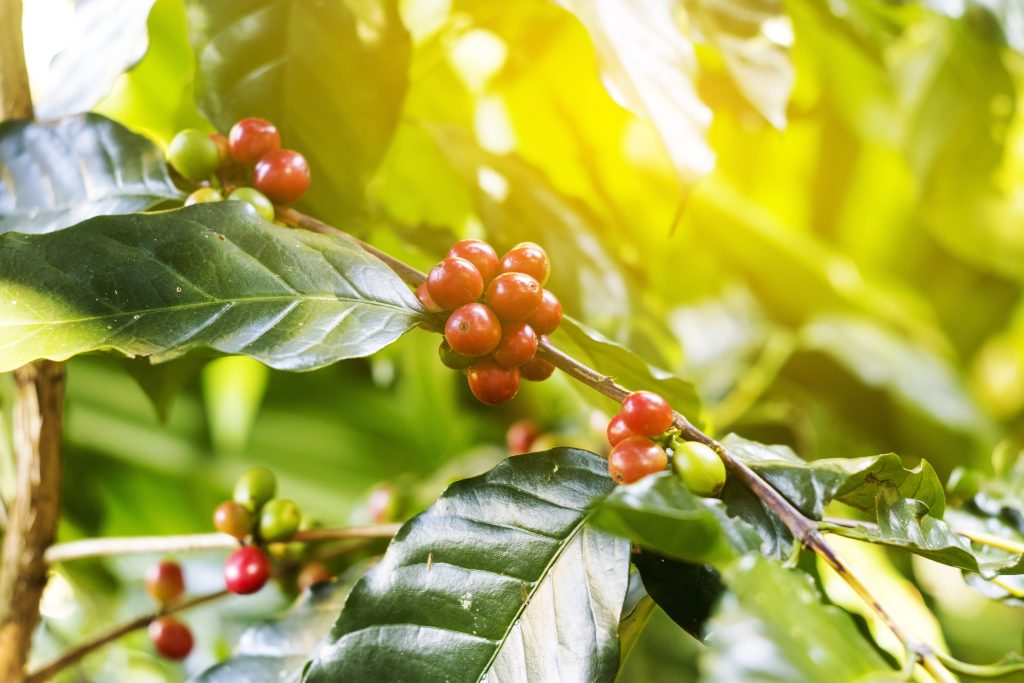Every culture has its craft. There is Japanese washi paper, Indian silks and Persian carpets. In Yemen, it is coffee. Nothing epitomises the uniqueness of this country better than the history of the coffee trade and the age-old tradition of coffee farmers.
When asked who has the greater claim to the origin of coffee, Yemen or Ethiopia, you will certainly get different answers. IIt seems that the plant was first cultivated in Ethiopia, but it is also certain that the beverage matured in neighbouring Yemen.
The history of coffee goes back centuries, and to uncover its roots, you have to dig through murky records and fantastical myths. We know that in the 15th century, Sufi monks in Yemen began growing, drinking and producing coffee for trade. Over time, the Yemenis refined their use of their country’s unique climate and terrain to produce a distinctive and flavourful coffee. Yemeni coffee soon became the centre of economic, historical and cultural changes that still reverberate around the world today.
Coffee became a central object of trade, social interaction and even religious devotion. Its consumption led to the emergence of “coffee shops”, and became a new export for Yemen and even a powerful stimulant for Muslim monks during their prayers. However, the effects were not always positive, and Yemeni coffee was also the subject of controversial bans, spoils of war and even inspired robbery and espionage.
FROM AL-MAKHA TO MOCHA
The history of Yemeni coffee took place particularly in the famous harbour city of Al-Makha. Under the rule of the Ottoman Empire, Yemen refined and carefully guarded its precious caffeinated product.
Selling live coffee plants or even seeds?
No, out of the question! As a result, the Yemenis were able to establish a worldwide monopoly on the coffee trade around this somewhat sleepy harbour.
The coffee from Al-Makha was initially known simply as mocha coffee, a name that originally had little to do with the chocolatey coffee drink you can buy today.
However, Yemen could not keep its secrets forever: Dutch traders eventually managed to get their hands on a living coffee plant. Within a few decades, coffee plantations were also established outside the borders of Yemen and the Ottoman Empire. The connection between the port of Al-Makha and the Indonesian island of Java also led to one of the oldest and most famous coffee blends in the world, Mocca Java.
And as coffee production increased worldwide, the Yemeni trade monopoly slowly disappeared, as did the city of Al-Makha.
MOCHA OF THE MODERN AGE
Even though the rest of the world has gradually caught up with Yemen in terms of coffee cultivation and production, Yemen has made an impressive name for itself in the world of speciality coffee. The wild and unmistakable flavour of its beans is unique and continues to entice connoisseurs.
Perhaps this is because Yemeni farmers still go about their work today as if nothing had changed in the last 400 years.
There is no debate here about manual or mechanised harvesting. For the Yemenis, the only way suitable for the coffee growing on the rugged mountain peaks is 100% natural, selective harvesting and dry processing.
Drinking a cup of mocha coffee is something special. It is a caffeinated pick-me-up, a step back in time and a reminder of culturally enlightening craftsmanship all in one.
Mocca coffee is a world cultural heritage and a term with a lot of meaning for real coffee lovers. That’s why mocha is an integral part of our roasts. A piece of history that reminds us coffee lovers with every sip of how coffee came to Europe, and ultimately to the whole world. It is usually drunk black and its flavour is characterised by a full and strong body.
It has been prepared and enjoyed in the same way for centuries: in a metal pot with a good layer of grounds. If desired, it can be sweetened during brewing to create a slightly caramelised taste.
However, NABER’s mocha can also be deliciously prepared in a Bialetti or classic espresso machine.


